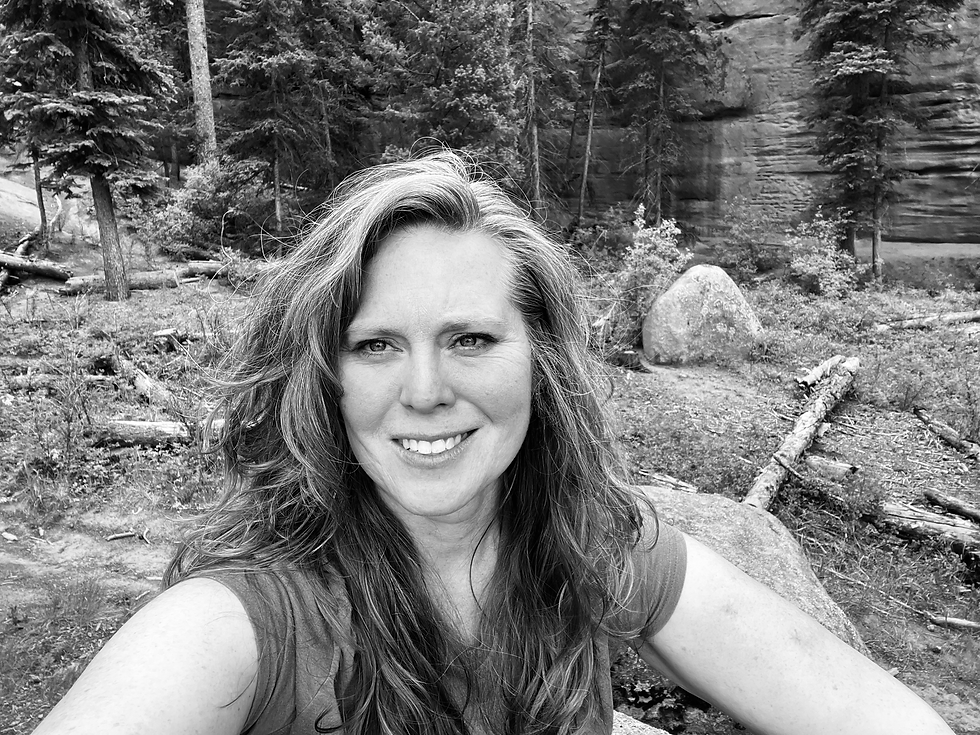The Collapse No One Talks About: When Trying to Be a Good Parent Breaks You
- mrglhic
- May 18
- 3 min read

When the system keeps telling you to do more, try harder, and regulate better—but your body is collapsing underneath it all. This piece names the hidden grief, the forced stillness, and the jagged fight to stay alive inside a system that doesn’t see your nervous system at all.
You did everything they told you to do.
You found the right therapists.You researched the diets. You filled the pill organizers. You kept the appointments. You showed up. Over and over.
And nothing changed.
Not in the way that matters. Not in the way that makes the screaming stop, or the panic lift, or the guilt loosen its grip on your spine.
And so, the collapse began.
But you couldn’t afford to collapse.
So you forced yourself to keep going. You rallied. Because there was no other option. Because someone had to get to work. Pay the bills. Pack the lunch. Show up to the IEP meeting. Pretend to hold it together.
And underneath all of it—was a grief so heavy it calcified into rigidity.
Because that’s what it takes to not fall apart. That’s what it takes to not disappear. That’s what it takes to not end it.
You become tight. Sharp. Unreachable. And still—everyone calls you strong. But they don’t see the necrosis underneath. They don’t see the parts of you that died in order to function.
You are not crazy.
You are not failing. You are surviving the unrelenting violence of a system that never made space for your nervous system to be real.
You are navigating a culture that sells you solutions for a wound it won’t let you name. And then blames you when those solutions don’t work.
You are carrying intergenerational trauma, economic instability, caregiving demands, and physiological shutdown—all at once. And still, you're showing up.
That’s not failure. That’s a miracle.
But let’s name what’s underneath it all: the nervous system is collapsing.
It’s not just emotional. It’s not just mental. It’s physiological.
You’ve been forced to adapt to chaos for so long that now chaos is the only thing that feels safe. Distraction feels safer than stillness. Doing feels safer than resting. Urgency feels safer than calm.
So even the tools they give you—mindfulness, breathing, meditation—they don’t work. Because they aren’t meeting your system where it actually is.
The good parent does everything—and still feels like they’re failing.
Because no matter how many professionals you see,no matter how many plans you follow, no matter how much you spend, or how hard you try—if your nervous system is in collapse, none of it can land.
And the more it doesn’t work, the more ashamed you feel. The more desperate you become. The more you rally again. Because sometimes the only alternative to trying harder is giving up entirely.
And you’re not ready to do that. So you keep going. Even when the cost is your body. Even when the cost is your sanity.
And then… we’re told we should just feel safe.
As if stillness is a place we all get to access. As if regulation is a mindset. As if we’re failing if we can’t sit still and feel peace.
But for many of us—stillness isn’t safe. It’s where the bad things happened. It’s where we froze. It’s where we disappeared. So we learned to survive by staying busy. By staying ahead. By staying tense.
And our whole nervous system was built on that.
So when someone tells you to “just relax,” or “just remember you have a choice,” what they don’t see is that your body doesn’t know what safety is yet.
You have to re-wire that from the ground up.
And you can’t do that through your thoughts alone.
You need presence. You need pacing. You need someone who can track your breath, your tone, your collapse—who can sit with your body long enough for it to feel safety, not just be told it’s there.
And then… we try the mindfulness.
We sit on the floor. We close our eyes. We try to breathe.
But it doesn’t feel safe. It feels like dying. It feels like suffocating. It feels like all the chaos we’ve been holding back is suddenly pressing in.
So we get up. We clean. We scroll. We manage. We overfunction.
Because that feels like safety—even if it’s slowly killing us.
And then we feel like failures again. Because we couldn’t even “just be present.”
But here’s the truth:
Trying to feel safe doesn’t work if your body never learned what safety feels like.
Your nervous system is not invisible. It’s just been ignored.
And it’s time to bring it back into the story.


